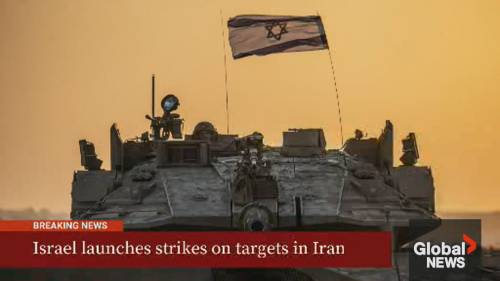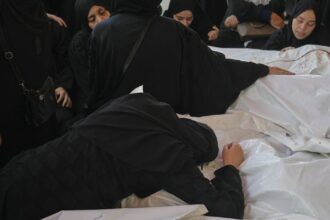The night sky over Tehran erupted with explosions early Saturday as Israel launched a targeted military strike against Iran, marking a dramatic escalation in tensions between the two adversaries. The precision strikes, which targeted military installations near the Iranian capital, represent Israel’s long-anticipated response to Iran’s unprecedented direct missile attack earlier this month.
Residents of Tehran reported hearing multiple blasts shortly after midnight local time, with video footage showing bright flashes illuminating the darkness followed by plumes of smoke. Iranian state media initially downplayed the incident, claiming their air defense systems had successfully intercepted most incoming projectiles, before later acknowledging limited damage to military facilities.
“This operation was executed with surgical precision,” said an Israeli military spokesperson in a brief statement. “We targeted specific military assets while deliberately avoiding civilian infrastructure.” The Israeli government had previously vowed a “consequential response” to Iran’s October 1st barrage of approximately 180 ballistic missiles against Israeli territory.
According to security analysts tracking the conflict, the Israeli strikes appear concentrated on air defense systems, missile production facilities, and command centers associated with Iran’s Revolutionary Guard Corps. Unlike Iran’s attack, which was announced in advance, Israel executed its operation with minimal warning, achieving tactical surprise.
“Israel’s response demonstrates a clear strategy of proportionality combined with military effectiveness,” noted Dr. Amira Sharif, international security expert at the Royal Institute for Strategic Studies. “By targeting military installations rather than energy infrastructure or population centers, Israel is signaling restraint while still demonstrating its capabilities.”
The international community has responded with calls for de-escalation. U.S. President Biden urged both sides to “step back from the brink of wider conflict,” while emphasizing America’s unwavering support for Israel’s right to self-defense. European leaders echoed similar sentiments, with the EU’s foreign policy chief expressing “grave concern about the spiral of retaliation.”
Oil markets reacted immediately to the news, with crude prices jumping nearly 4% in early trading as investors weighed potential disruptions to Middle Eastern energy supplies. Economic analysts suggest prolonged instability in the region could further complicate global inflation challenges already facing major economies.
For Canadians, the conflict raises concerns about both economic ripple effects and the safety of dual citizens in the region. Global Affairs Canada has maintained its advisory against travel to Iran and urged all Canadian citizens currently in the country to leave immediately.
Iranian officials have vowed to respond to what they term “Israeli aggression,” setting the stage for what many fear could become a dangerous cycle of escalation. Supreme Leader Ayatollah Ali Khamenei convened an emergency meeting of Iran’s Supreme National Security Council following the strikes, though no immediate military response has materialized.
The conflict occurs against the backdrop of ongoing regional instability, including Israel’s ground operations in Lebanon and its year-long war against Hamas in Gaza. Diplomatic efforts to contain the widening conflict have thus far proven ineffective, raising troubling questions about the region’s trajectory.
As dawn broke over Tehran, residents emerged to assess the damage amid heightened security and uncertainty. The fundamental question now facing the region and indeed the world: will these strikes mark the beginning of a wider conflagration, or can diplomatic channels finally prevail in pulling both nations back from the precipice of all-out war?










